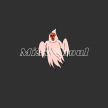A Weapon Disguised in Poetry
Poetry of the Romantic Era

Poetry to the Romantics was exploring the complexities of life, death, music, society, and everything else they found intriguing, only using the words and resources they had at the time. The Romantic would focus on lasting and temporary, searching for the sublime feeling of being small in a vast world. The Romantic era was a response to the Industrial Revolution and how that was affecting Nature and society. Nature and society are connected through poetry when they usually are separated into two different categories. Romantic Poetry was meant to take the reader into what the world should be or what it could become. Poetry sheds light on the aspects of life and Nature that make life worth living, while also criticizing the evilness of humans that corrupt the good.
The Romantic poets were hoping to spread their love for Nature and philosophy so that their society may reflect on themselves as people and make better choices after reading their poetry. William Wordsworth expresses his anguish with his fellow man and their relationship with Nature through The world is too much with us. He writes, "For this, for everything, we are out of tune;/ It moves us not. Great God! I'd rather be/ A Pagan suckled in a creed outworn;" (208. Lines 8-10) as a reaction to his fellow man not appreciating and protecting the only world they had. Now, past the Industrial Revolution, man's relationship with Nature has changed and has been ruined.
Poetry is meant to bring about change and make an impact on its audience through art. Poetry may sound entrancing to the ear, but the messages behind it are what the poet thought was so important that they had to put pen to paper to get their thoughts or message out into the world. The audience is the general public and free thinkers. I guess the audience would be whoever would want to read or hear the poetry. Of course, word of mouth has to spread that content is actually worth consuming and analyzing with any audience. When poetry spreads a message that an audience finds profound or intriguing, it is analyzed.
If the poetry has a particular cause or message, such as William Blake's poems from Songs of Innocence and Songs of Experience, it will intrigue somebody to read and take in the poet's thoughts. If a poet's poems are boring, the poem would not be a sensation that would spread as widely, even if the poem was a critique on a critical issue. Of course, boredom is objective, but generally, audiences will listen to word of mouth. Blake was spreading his message against the Industrial Revolution and slavery, and now we are studying him in a college course almost two hundred years later. His works had made an impact and still are. His work can be analyzed through the lens that was intended when he wrote it, but we can now analyze it as how far we have come or where we have failed as a society.
Blake's Holy Thursday explores poverty and suffering from a Christian lens, "Is this a holy thing to see/ In a rich and fruitful land,--/ Babes reduced to misery, Fed with cold and usurious hand?" (83. Lines 1-4). This topic is still essential in today's Christian-dominated society and can be read from a contemporary lens or inspire contemporary poetry of the same topics. Students in current classrooms can relate to and analyze this poem because of their connections to class systems, whether on the top or bottom of the spectrum.
Poetry is different from other genres because of its free form and structure. Poetry can be anything and has so many different genres and formats that someone can resonate with more than another. For example, my high school studied William Blake, but many of my peers became interested in Spoken Word Poetry instead of the formal poetry taught in class. However, our school's open mic night presented the Romantics' influence in Spoken Word poetry. Students would write about Nature in contrast to their hardships as the Romantics did. While this created great duality in their poems and emphasized the hardships of being an immigrant, socioeconomically disadvantaged, or so on, it also reflected on the Romantic poetry they had read earlier in the school year, whether my peers had realized it or not. The Romantic poets and their heavy use of Nature imagery are still present as a primary form of poetry. Personally, if a teacher asked a young me, "What do poets write about?" I would say "love" and "flowers."
On this note, poetry, being once known as the highest form of literature, was primarily only accessible to higher classes who were educated and could read poetry when historically, there were periods when lower classes were illiterate. Poetry was the highest form of literature because of how complicated it was. Lord Byron wrote She walks in beauty as a three-stanza poem comparing an unknown woman to the darkness of the night. The poem is short, sweet, and dangerous. In comparison, Darkness is about the doom of man. It displays some disturbing imagery such as "And War, which for a moment was no more,/ Did glut himself again: a meal was bought/ With blood, and each sate sullenly apart/ Gorging himself in gloom: no love was left;" (445. Lines 38-41). Byron had a darkness to both poems, but they are far different and have complexities to analyze from his life or just the poetry itself.
Now, it is accessible to a larger population when education is mandatory in many countries. It has also changed to fit the larger population, no longer for just higher-class educated nobles but also socioeconomically disadvantaged high school students. Now, young students also can use poetry to "wake us up," as said by Coleridge. Poetry is a weapon disguised in beauty and art to change each world and person affected by its words.
Works Cited
Blake, William. “Holy Thursday.” The Broadview Anthology of British Literature, edited
by Joseph Black, Leonard Conolly, et.al, Broadview Press, 2017, pp. 83
Byron, George Gordon, Lord. “She Walks in Beauty.” The Broadview Anthology of British
Literature, edited by Joseph Black, Leonard Conolly, et.al, Broadview Press, 2017, pp. 445
Wordsworth, William. “The world is too much with us.” The Broadview Anthology of British
Literature, edited by Joseph Black, Leonard Conolly, et.al, Broadview Press, 2017, pp. 208
About the Creator
Miss Ghoul
Credentialed English teacher






Comments
There are no comments for this story
Be the first to respond and start the conversation.